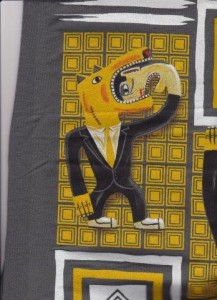(minus his scratching and clawing comments)
“We’re all in our private traps.” (with an incidental nod to Psycho screenplay writer Robert Bloch)
True–We all potentially have limits and limitations–which I have spoken of earlier. These are our private traps, frequently non-physical ones, as William Blake described them–“The mind-forg’d manacles” (“London”) or as Sting put it–“These are the soul cages.”
Bates and Marion describe the traps as “born in” or “stepped in”–two common ways of acquiring or inheriting traps. “Born in” might prove to be physical or hereditary. The “stepped in” kind of traps are very common and myriad. They are most often (like Marion’s) the self-created ones. As I have frequently said as far back as my teaching daze, “We do it to ourselves and we do it to one another (sometimes at the same time).” Certainly we do it to ourselves more often than not via attitude. One may not be able to control one’s circumstances or context to one’s own satisfaction, but one can often choose the attitude that one has toward these things. It is our attitude, finally, that defines us as persons and individuals—our deep style, so to speak.
I think in all of this, it is important to remember that nothing is good or bad, as Hamlet pointed out, and only “thinking’ makes it so. For me, this Shakespearean perspective confirms the final arbiter of experience and consciousness as one’s own attitude toward whatever context or problems you care to name. Thus, we ourselves are most responsible for our own potential freedom and liberation. How much we have and are able to access. No one else. Returning then to Bates’ initial comment–to a large extent, our private traps are just that–our private traps, and no one else’s.
……………………
photo credit: portion of the author’s Johnny Clegg t-shirt; original design by South Africa’s Norman Catherine

